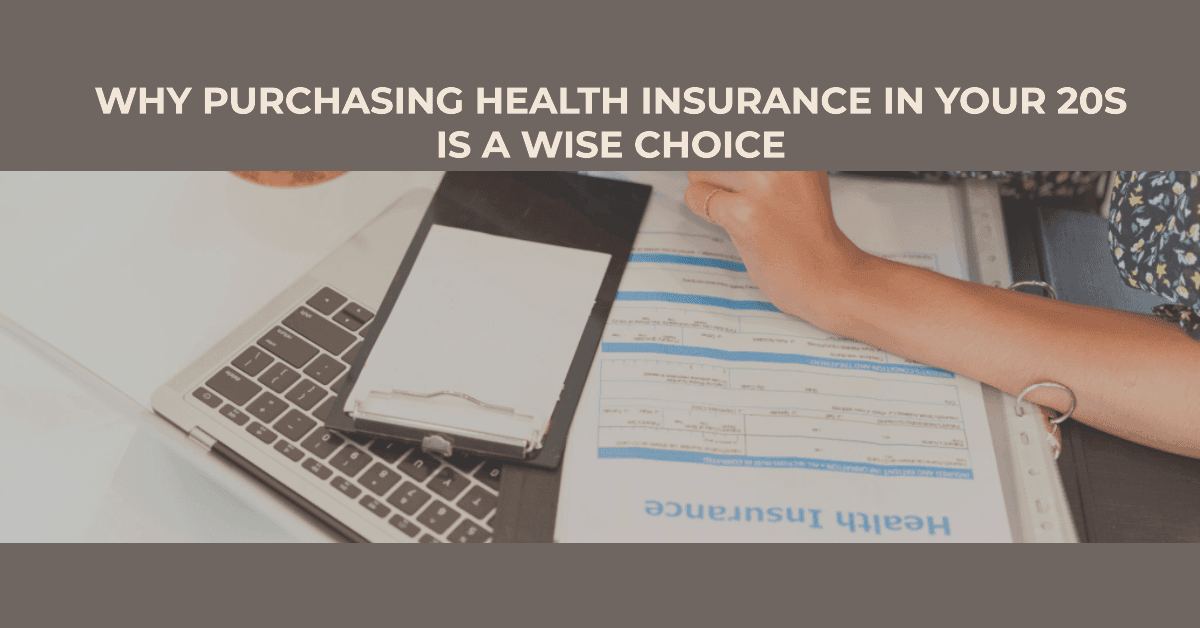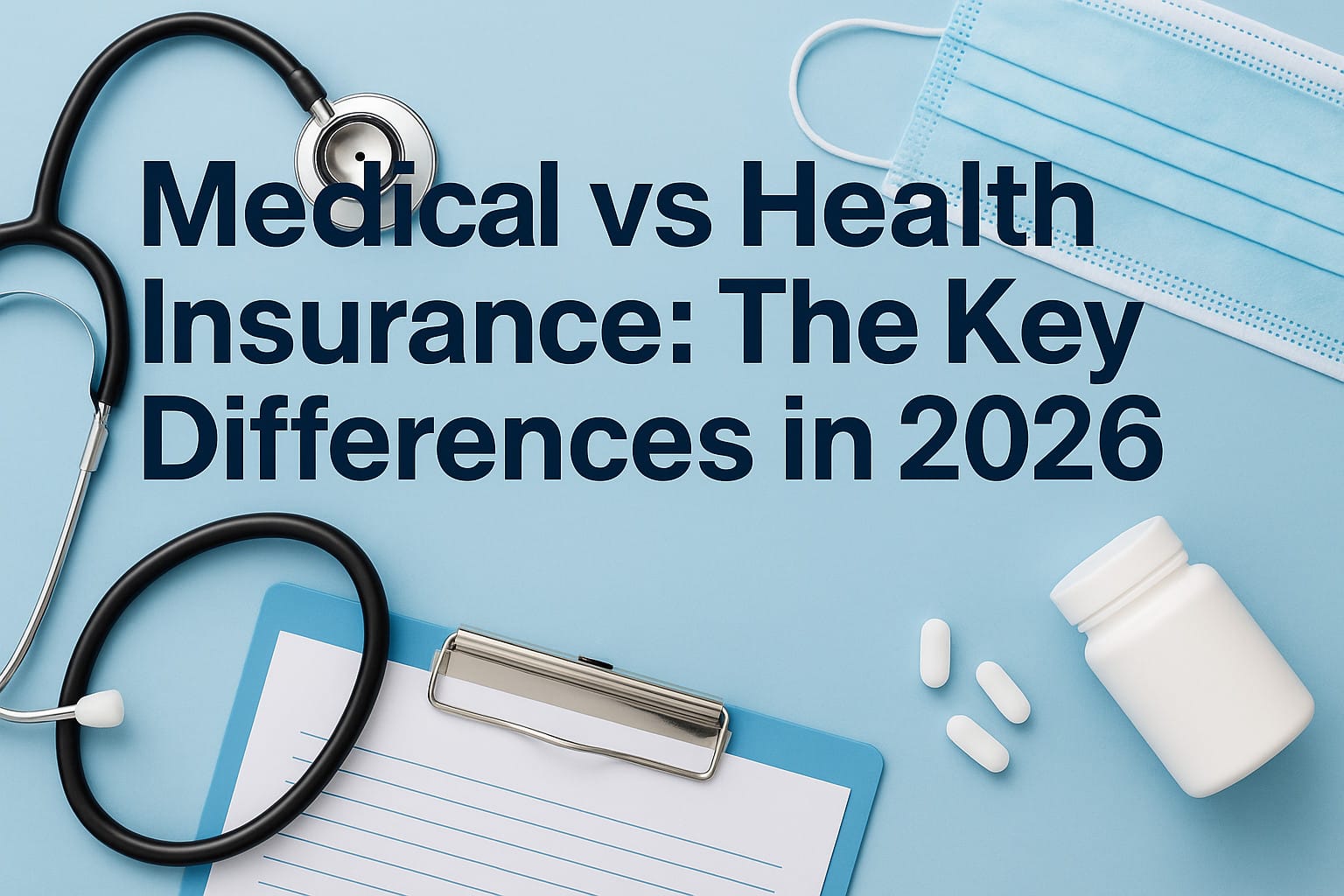Health insurance is like a safety shield that protects you when unexpected health problems come knocking.
In your twenties, you’re probably busy with lots of things – jobs, adventures, and just enjoying life. But even though you might not think about it much, having health insurance is a smart move right now. Think of health insurance as a safety net that catches you if you ever have to pay a lot of money for medical stuff.
In this blog, we’ll tell you all about the really good things that come with having health insurance early on. It’s not just about having money when you’re sick; it’s also about having access to good healthcare. So make sure to read until the end.
Understanding Health Insurance

Health insurance is a type of insurance that helps pay for medical expenses. When you have health insurance, you pay a monthly premium to an insurance company. In return, the insurance company agrees to pay for some or all of your medical expenses, such as doctor visits, hospital stays, and prescription drugs.
Different Types of Health Insurance Plans
There are many different types of health insurance plans available. Some of the most common types are:
- Health Maintenance Organizations (HMOs): HMOs require you to see a doctor within their network for most medical services. You typically have to pay a co-payment for each visit.
- Preferred Provider Organizations (PPOs): PPOs give you more flexibility to see doctors outside of their network, but you will typically pay higher copayments and coinsurance for these visits.
- High-deductible Health Plans (HDHPs): HDHPs have lower premiums than other types of plans, but they also have higher deductibles. This means that you will have to pay more out of pocket for medical expenses before the insurance company starts paying.
Benefits of Getting Health Insurance in your 20s

Lower Premiums
The younger you are, the lower your health insurance premiums will be. This is because younger people are considered to be at a lower risk of developing health problems.
For example, a 25-year-old expat in Dubai may pay around AED 300 per month for health insurance, while a 40-year-old expat may pay around AED 600 per month.
For a 25-year-old expat in Dubai, for over a year, you will pay AED 3,600 for your health insurance. Now, let’s say you wait until you are 40 to get health insurance. Your monthly premiums will be around AED 600, so you will pay AED 7,200 per year for your health insurance.
In this example, you would have saved AED 3,600 by getting health insurance at a younger age.
Here are some other examples of how getting health insurance in your 20s in Dubai can save you money in the long run:
- If you need surgery, your health insurance will help to cover the cost. This can save you thousands of dirhams.
- If you need prescription drugs, your health insurance will help to lower the cost. This can save you hundreds of dirhams each year.
- If you get sick and need to miss work, your health insurance may provide you with short-term disability benefits. This can help you to keep your income while you are unable to work.
The bottom line is that getting health insurance in your 20s in Dubai can save you a lot of money in the long run. If you are healthy and can afford it, it is a wise decision to get health insurance as early as possible.
Coverage for Unexpected Medical Expenses
Accidents and emergencies can happen at any time, regardless of age or health. A serious accident or illness can result in significant medical expenses, which can be financially devastating, especially for young people who are just starting out in their careers.
That’s why it’s important for young people to have financial protection in place to cover unexpected medical expenses. There are a few different ways to do this, including:
- Health insurance: Health insurance can help to cover the cost of doctor’s visits, hospital stays, and other medical expenses.
- Medicare: Medicare is a government health insurance program for people over the age of 65.
- Medicaid: Medicaid is a government health insurance program for low-income people.
- Long-term care insurance: Long-term care insurance can help to cover the cost of care if you need help with activities of daily living, such as bathing, dressing, and eating.
Preventive Care and Wellness Benefits
Preventive care is health care that is designed to prevent illness or disease. It includes things like regular check-ups, screenings, and vaccinations. Meanwhile, wellness benefits are the type of preventive care that focuses on promoting overall health and well-being. They can include things like gym memberships, yoga classes, and nutrition counseling.
Many health insurance plans cover preventive care and wellness benefits at no cost to the policyholder. This means that you can get the care you need to stay healthy without having to worry about paying for it.
By staying healthy at an early age, you can reduce your risk of developing chronic diseases, such as heart disease, stroke, and cancer. You can also improve your quality of life and live longer.
Building a Health History
A health history is a record of your past and present health conditions. It can include things like your medical conditions, medications, allergies, and immunisations.
It is important to establish a health record early on, even if you are healthy, which is one of the reasons why you get one even in your early 20s. This is because it can help you track your health over time and identify any potential problems early on. It can also be helpful if you need to see a new doctor or if you need to apply for health insurance.
There are several potential benefits to building a health history early on:
- It can help you get the care you need. If you have a health history, your doctor will better understand your medical needs and can recommend the best course of treatment for you.
- It can help you get lower health insurance premiums. Some health insurance companies offer discounts to people who have a health history.
- It can help you qualify for preventive care benefits. Many health insurance plans cover preventive care, such as annual check-ups and vaccinations. Having a health history can help you qualify for these benefits.
Potential Risks of Delaying Health Insurance in your 20s

Financial Vulnerability
One of the biggest risks of delaying health insurance is financial vulnerability. If you get sick or injured without health insurance, you could be responsible for paying for all of your medical expenses out of pocket. This could include doctor’s visits, hospital stays, prescription drugs, and other costs.
Even a relatively minor illness or injury can be expensive, and a serious illness or injury could bankrupt you. If you don’t have health insurance, you could also be denied coverage for pre-existing conditions. This means that you could be denied coverage for a condition that you already have, even if you try to get health insurance later.
Limited Access to Necessary Care
Without health insurance, you may not be able to afford to see a doctor or get the treatment you need. This could lead to your condition getting worse or even developing into a chronic condition.
Even if you can afford to see a doctor, you may not be able to afford the treatment you need. This is especially true for expensive treatments, such as cancer treatment or surgery.
Impact on Future Insurability and Premium Rates
If you delay health insurance until you are older or have a pre-existing condition, it could make it more difficult to get health insurance in the future. You may also have to pay higher premiums.
This is because health insurance companies use your medical history to determine your risk of getting sick or injured.
You may also be ineligible for certain types of health insurance plans. For example, some plans may only be available to people under the age of 30.
Myth Debunking: “I’m Young and Healthy, I Don’t Need Insurance”

Many young people believe that they are invincible and that they don’t need health insurance because they are young and healthy. However, this is a misconception.
Even young people can get sick or injured. In fact, accidents and injuries are the leading cause of death for people under the age of 45. And many chronic diseases, such as heart disease, stroke, and cancer, can start in young adulthood.
Health problems can happen at any age, regardless of how healthy you are. You could be in a car accident, get sick with the flu, or develop a chronic condition.
Even if you are healthy now, there is no guarantee that you will stay healthy in the future. That’s why it’s important to have health insurance, even if you are young.
That is why aside from practicing cost-effective strategies for managing health risks, getting health insurance in your 20s is a smart way to go.
Conclusion
In conclusion, getting health insurance in your 20s is a smart decision. It helps you stay prepared for unexpected health issues and saves you money in the long run. Starting early means, you pay lower premiums and build a strong safety net for your future.
With health insurance, you can access quality medical care without worrying about big bills. So, don’t wait. Invest in your health and secure your tomorrow by getting health insurance today. It’s a simple step that leads to peace of mind and a healthier, happier life ahead.







